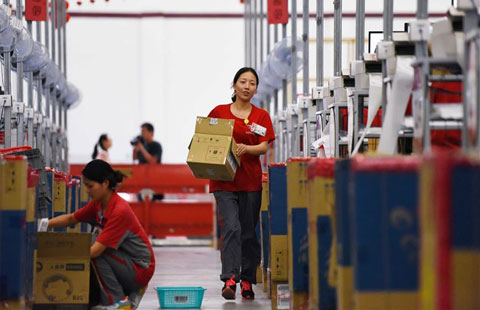China continues to attract intl capital
(cntv.cn) Updated: 2012-11-15 13:47China has been a favorite destination for foreign investment since it kicked off its fast-paced development. It remains competitive in attracting foreign capital despite the slow recovery of the world economy and the many uncertainties facing international investment.
According to a recent report released by the United Nations Conference on Trade and Development, China has surpassed the US to become the largest recipient country of foreign direct investment in the first half of this year, despite a slight decline in FDI inflows from a year earlier.
This year, due to the impact of the global economic slump, foreign direct investment dropped in China. But the government sees it as an opportunity to optimize investment structure. It's more selective with foreign investment, and has channelled more investment into the western part of the country to balance regional development.
Unilever, the world consumer goods giant, recently opened a new manufacturing base in Southwest China's Sichuan province. Its global CEO says the company is still bullish on China's growth opportunities.
"A 7.5 percent growth rate in China is still a considerable growth rate. If you look at the western regions, they're less developed and many of the rural areas have potential to develop, as we just talked to the governor of Sichuan region, it's been growing at 15 percent a year for several years already. The city itself is growing at 45 percent," Paul Polman, CEO of Unilever, said.
Embattled mobile giant Nokia had to restructure itself by large layoffs and factory closures in Europe and North America. But despite slashing jobs, Nokia says it is ready to invest more into R&D in China.
Though China is experiencing an economic slowdown, its shift in growth patterns has created great opportunities. A UN report predicts this year's global direct investment will amount to $1.6 trillion, and China has apparently received a big portion of it. Analysts expect that China will remain a favourite destination for foreign investment in the years to come.
- China's power use up 2.1% in May
- China's new yuan loans rise in May
- Gold is on the rise
- JD working staff prepare for '618' online shopping festival
- Better early than late for MSCI inclusion of China A-shares
- MSCI to delay including China A-shares in emerging markets index
- Suzuki to recall 288 vehicles in China
- China tops in greenfield investment, surpassing US


















